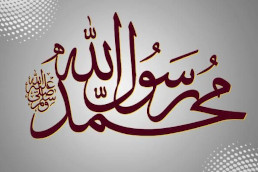Chapter on the Cupping of Rasulullah (sallallahu ‘alaihi wasallam) 
عن أبي جميلة عن علي أن النبي صلى الله عليه وسلم احتجم وأمرني فأعطيت الحجام أجره (الشمائل المحمدية للترمذي، الرقم: 344)
Hazrat Abu Jameelah (rahimahullah) reports that Hazrat Ali (radhiyallahu ‘anhu) said, “Nabi (sallallahu ‘alaihi wasallam) once underwent the treatment of cupping and instructed me (to pay the one carrying out the cupping), so I paid the cupper his fee.”
Commentary:
From this Hadith, we come to know that undergoing the treatment of cupping is permissible and that paying its fee is also permissible.
عن ابن عباس أظنه قال: إن النبي صلى الله عليه وسلم احتجم على الأخدعين وبين الكتفين وأعطى الحجام أجره ولو كان حراما لم يعطه (الشمائل المحمدية للترمذي، الرقم: 345)
Hazrat Ibnu Abbaas (radhiyallahu ‘anhuma) reports that on one occasion, Rasulullah (sallallahu ‘alaihi wasallam) underwent the treatment of cupping on both sides of his mubaarak neck and between his mubaarak shoulders, and he (sallallahu ‘alaihi wasallam) paid the cupper his fee, and had paying the fee been haraam, Rasulullah (sallallahu ‘alaihi wasallam) would not have paid it.”
Commentary:
As mentioned previously, the manner in which cupping would be administered during the mubaarak era of Rasulullah (sallallahu ‘alaihi wasallam) was that the blood used to be sucked out by the mouth of the cupper via an instrument. It is for this reason that this occupation and its income has been disapproved of and discouraged in some Ahaadith. In some Ahaadith, its income has been declared as khabeeth (dirty). Hence, on account of such Ahaadith, some ‘Ulama have deduced that the income earned through cupping is not permissible. However, these Ahaadith outwardly seem to contradict the abovementioned Hadith, wherein it is clearly mentioned that Rasulullah (sallallahu ‘alaihi wasallam) underwent the treatment of cupping and paid the cupper his fee.
Imaam Ahmed bin Hambal (rahimahullah) has reconciled between these two types of Ahaadith in this manner that the discouragement (of administering the treatment of cupping) is directed to free people i.e. it is makrooh tanzeehi (disliked) for them to administer this treatment and take a fee. As far as slaves are concerned, then it is permissible for them without being makrooh. Imaam Ahmad bin Hambal proves the permissibility for slaves from the fact that the person who administered cupping for Rasulullah (sallallahu ‘alaihi wasallam), Hazrat Abu Taibah (radhiyallahu ‘anhu), was a slave. Hence, this occupation is permissible for slaves without being makrooh.
However, according to the other three Imaams, Imaam Abu Hanifah (rahimahullah), Imaam Maalik (rahimahullah) and Imaam Shaafi’ee (rahimahullah), the occupation of cupping is permissible for both, free people and slaves. These Imaams base their verdict on the fact that Rasulullah (sallallahu ‘alaihi wasallam) underwent the treatment of cupping and paid the fee. As far as making a distinction between free people and slaves is concerned, then they opine that if it is permissible for slaves then it will be permissible for free people as well as the laws of deen pertain to free people and slaves equally. As for the income received being referred to as Khabeeth (dirty), then this was to disapprove of the method of cupping that was being adopted at that time and not to disapprove the actual occupation.
Allaamah Ibnul Jowzi (rahimahullah) says that the fee of cupping has been declared as khabeeth (dirty) because a muslim who requires cupping has a need in regard to his health. Hence, it is compulsory upon another muslim to assist him at this time in fulfilling his need without taking any remuneration from him. In other words, no remuneration should be taken for fulfilling this need.
Through the abovementioned Hadith where it is mentioned that Rasulullah (sallallahu ‘alaihi wasallam) underwent the treatment of cupping and paid the cupper a fee, Hazrat Ibnu ‘Abaas (radhiyallahu ‘anhuma) has proven its permissibility, and said that if it was not permissible, Hazrat Rasulullah (sallallahu ‘alaihi wasallam) would not have paid the fee.
 Ihyaaud Deen An Effort to Revive Deen in Totality
Ihyaaud Deen An Effort to Revive Deen in Totality



